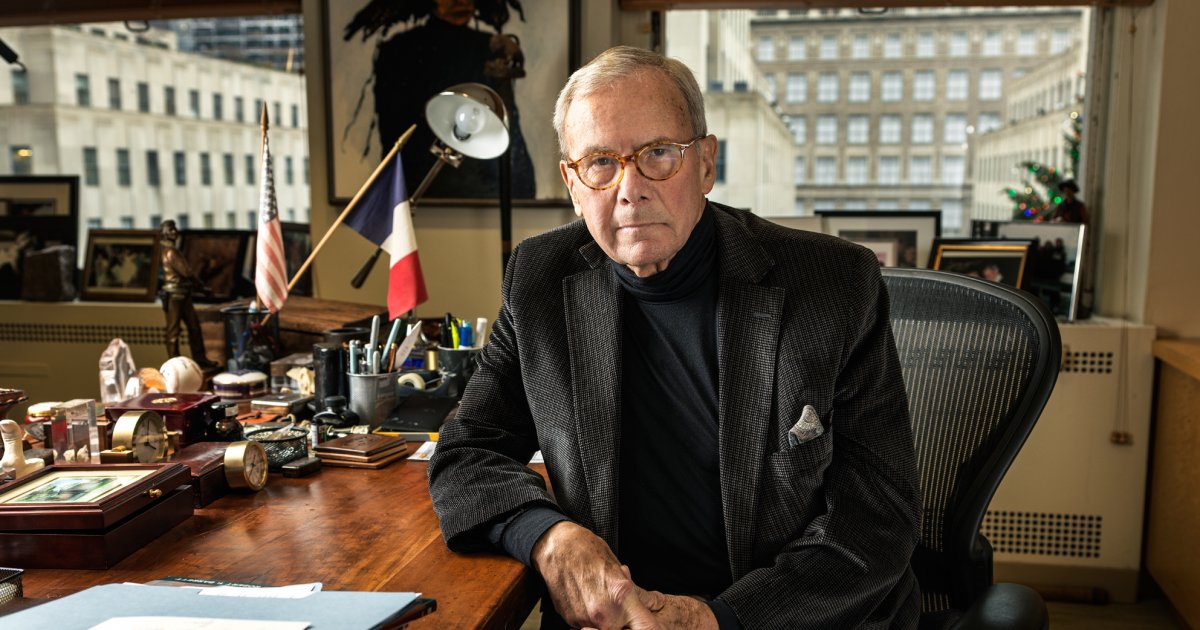Tom Brokaw is Living With Blood Cancer
- Nearly two years ago, in early 2021, longtime newsman Tom Brokaw announced his retirement after 55 years with NBC News.
- A few years earlier, Brokaw sat down with SurvivorNet to discuss his multiple myeloma.
- Brokaw has been living with the blood cancer, and serves as a prime example of the incredible advances that have been made when it comes to cancer treatment in recent years.
- Brokaw said he learned to live with the disease by focusing on other things.
He has also seized the opportunity presented by his diagnosis to educate others about multiple myeloma. This year, approximately 34,470 new cases of this disease will be diagnosed in the U.S., according to the American Cancer Society (ACS).
Read More"He was deducting all the possibilities. And by noon, he went to a chief oncologist at the Mayo Clinic, and he said, ‘I think Tom Brokaw has got multiple myeloma.’ I didn't know what the hell they were talking about. Talking about proteins, bone invasion, and a hole in your hip,” Brokaw explained.
Tom Brokaw spoke to SurvivorNet about his experience with multiple myeloma.
“Finally, I went into my journalistic mode How long? What are the chances? What are the treatments? Personal side was, my God, am I going to die? Are we all right in our family? Do we have everything arranged? I've had a life that was so trouble-free, and suddenly I was looking at this deep, dark hole.”
Maintenance Therapy for Multiple Myeloma
Brokaw is a living testament to the extraordinary advances in treatment which are increasingly turning some cancers such as multiple myeloma into chronic diseases. When he spoke to SurvivorNet, he explained he was on a drug called Revlimid which, in combination with other therapies, is used to kill myeloma cells. Brokaw is now in what's called the "maintenance phase" of treatment in which lower doses of Revlimid (also known by its molecular name lenalidomide) are used to keep the immune system on high alert against the cancer.
"Lenalidomide prolongs progression free survival, in fact, doubles time without myeloma," one of Brokaw's physicians, Dr. Ken Anderson of The Dana Farber Cancer Institute, told SurvivorNet. The drug works by helping to stimulate the immune system and block the development of abnormal cells.
In a previous interview with SurvivorNet, Hematologist Dr. Nina Shah explained maintenance therapy for this disease. "Maintenance is therapy is just that. It's maintaining the myeloma at a certain level, or maybe pushing it away, preventing it from growing,” she explained.
Dr. Nina Shah explains maintenance therapy for multiple myeloma.
"And the way we do that is to give you a small dose of a drug called lenalidomide or Revlimid. It has what we call an immunomodulatory effect. That is it's telling your immune system, 'hey, wake up,'” Dr. Shah added.
Finding the Best Care
When it comes to giving advice to other patients, Brokaw says he's a big proponent of going with the best rather than the most likable doctor.
"I think that we have to change the mindset of a lot of patients," he said. "And get tough, frankly, about changing that mindset. I know you love your doctor, I know you think he's a great guy, or she's a great person. The fact is unless they've got the skillset, they can be a bastard, but if they're good at what they're doing, go to them!"
Being armed with the knowledge that you're in the care of an excellent doctor may help minimize fears and anxieties that can result from a cancer diagnosis.
Contributing: SurvivorNet Staff
Learn more about SurvivorNet's rigorous medical review process.


